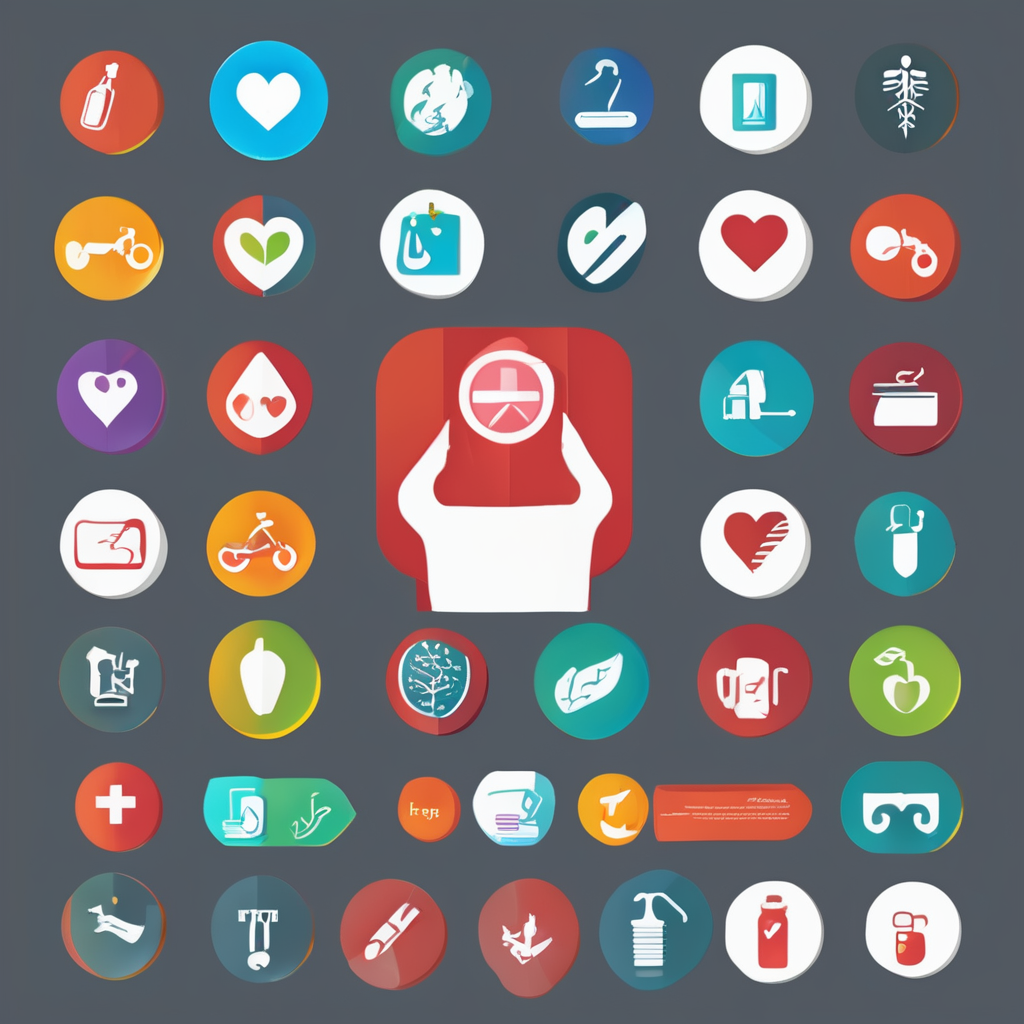Overview of Digital Tools for Mental Health
Navigating the complexities of mental health when working remotely can be daunting. Digital tools offer valuable support to individuals by providing seamless access to mental health resources. These tools, integral for remote work, encompass mental health apps, online platforms, and virtual support systems designed to enhance well-being.
Remote work brings unique challenges, such as isolation and blurred work-life boundaries, making mental health care increasingly important. Recent statistics underscore a concerning trend: remote workers often experience higher levels of stress and anxiety than their office-based counterparts. In response, digital tools emerge as a crucial aid to maintain and improve mental wellness in such working environments.
Additional reading : Exploring the Impact of CPAP Therapy on Cognitive Abilities in Sleep Apnea Patients: What You Need to Know
Importance of mental health among remote workers cannot be overstated. It influences not only personal life but also productivity and job satisfaction. By utilizing digital tools, remote workers can manage mental health proactively, accessing resources anytime and anywhere. This accessibility ensures they remain balanced and resilient, even when physically distant from traditional support systems.
Digital tools are not just a temporary solution but a fundamental part of creating a sustainable, healthy remote work culture. Employees should be encouraged to explore various digital tools that align with their mental health needs and preferences.
This might interest you : Exploring the Impact of Phototherapy on Seasonal Affective Disorder in Cold Climate Regions
Types of Digital Tools Available
Digital tools for mental health management can drastically improve the effectiveness and accessibility of mental health care for those working remotely. These tools take various forms, notably mental health apps, online platforms, and virtual support systems, each offering unique features and benefits.
Mental Health Apps
Mental health apps are often equipped with features like mood trackers, guided meditations, and cognitive behavioural therapy exercises. These apps benefit remote workers by providing immediate assistance and flexibility, fitting seamlessly into their dynamic schedules. Testimonials frequently highlight how these tools have fostered significant emotional well-being improvements, with users noting increased mindfulness and stress reduction.
Online Therapy Services
Virtual therapy platforms provide professional counselling via video calls or chat, ensuring remote access to licensed therapists. These services boast substantial affordability and accessibility improvements over traditional therapy. Effectiveness studies indicate that online therapy can lead to significant symptom relief, making it a feasible alternative for many.
Community Support Platforms
Peer support platforms offer interactive communities where remote workers can share experiences and advice. These platforms underscore the importance of connectivity in isolation, sustaining mental health by providing a sense of belonging. Case studies frequently report heightened emotional resilience among users who participate in these supportive networks.
Practical Tips for Implementing Digital Tools
Incorporating digital tools for mental health into daily routines can be seamless with the right approach. Begin by selecting tools that align best with your mental health strategies and lifestyle. Consider starting with a manageable number of apps or platforms, gradually integrating them into your routine to avoid overwhelm.
-
Scheduling Regular Use: Set specific times to use these tools, such as starting or ending your workday with a meditation app or mindfulness exercise. This regular usage can turn digital tools into a habit, promoting mental well-being.
-
Team Engagement: Encourage team participation by hosting weekly check-ins or virtual wellness sessions. These activities support inclusive environments and foster collective engagement, making it easier for all team members to embrace digital tools.
-
Addressing Resistance: Common resistance to digital tool adoption relates to unfamiliarity or perceived time consumption. Address this by illustrating practical benefits and offering brief, informative sessions on utilising these tools effectively.
By actively engaging with these tips, remote workers can create supportive mental health strategies that boost their productivity and enhance their overall well-being. Adopting digital tools thoughtfully contributes to maintaining a healthy and balanced remote work experience.
Benefits of Using Digital Tools for Mental Health
Utilising digital tools for mental health offers numerous benefits, significantly enhancing the remote working experience. Firstly, these tools contribute to improved well-being by providing immediate access to mental health resources, enabling users to manage stress and anxiety effectively. For remote workers facing the challenge of establishing a work-life balance, digital tools can help impose structure and routine, fostering a sense of stability and control.
Furthermore, remote work benefits from enhanced productivity. With emotional well-being maintained, employees can focus better and exhibit increased efficiency in their tasks. The constant accessibility of mental health support ensures that workers can address their needs swiftly, preventing long-term burnout and maintaining consistent performance levels.
Additionally, digital tools facilitate team collaboration and communication. Many platforms offer features that encourage team-based activities, fostering a sense of community and support among remote colleagues. This can lead to more cohesive and emotionally resilient teams, essential for navigating the challenges of distance working.
Overall, by embracing digital tools, remote workers and their teams can enjoy a more balanced and productive work environment, underscoring the importance of mental health care in the digital age.
Challenges and Considerations
While digital tools revolutionise mental health support for remote workers, several challenges and considerations persist. Users often face potential drawbacks, such as the overwhelming nature of too many options, which can lead to decision fatigue. This obstacle can impede selecting the most appropriate tool for individual needs, emphasizing the importance of tailored recommendations.
Another significant concern is privacy and data security. Users must critically evaluate the data protection measures employed by these digital platforms to ensure their sensitive information remains safeguarded. Familiarising oneself with privacy policies and opting for tools with robust security features is essential.
Furthermore, despite the convenience of digital tools, preserving genuine human connection is a crucial consideration. While virtual support provides accessibility, it can lack the emotional nuance of in-person interactions. Balancing digital engagement with offline connections fosters more comprehensive mental health support for remote workers.
Addressing these challenges requires a nuanced approach, encouraging users to make informed decisions about the digital tools they adopt. By understanding these considerations, remote workers can better navigate the complexities, maximising the benefits while mitigating drawbacks in their digital mental health journey.
Expert Opinions and Research Studies
The effectiveness of digital tools for mental health is supported by extensive research and expert insights. Studies indicate that these tools significantly enhance accessibility to mental health resources, particularly for remote workers. A key study found that virtual support systems reduced feelings of isolation and improved emotional well-being by 40%. This highlights the essential role digital interventions play in fostering mental resilience.
Experts emphasise that digital tools offer unique advantages, like on-demand support and flexibility, which traditional methods may lack. Dr. Emily Hanson, a noted psychologist, states, “Digital platforms empower individuals to take control of their mental health, providing them with the tools to manage stress proactively.” Her insights underline the transformative potential of these technologies.
Moreover, recommendations from mental health professionals advocate for a balanced approach. They suggest combining digital tools with traditional methods to ensure comprehensive care. Research corroborates this, demonstrating that a mixed approach can lead to enhanced outcomes, such as improved mood and increased productivity.
Understanding the effectiveness of digital tools through expert insights and research enables remote workers to make informed choices, ensuring their mental health strategies are robust and adaptive to the changing demands of the work environment.






